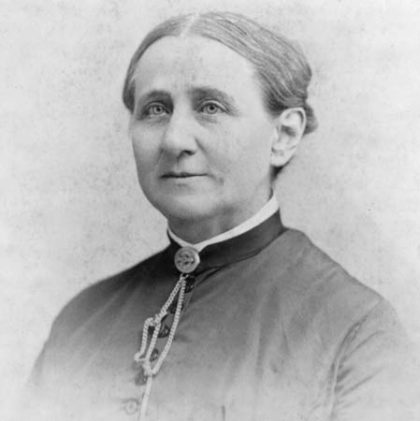
Every year since 1987, March has been considered Women’s History Month. What started as International Women’s Day in 1911 became National Women’s History Week in 1980 and then a month designated to learning about and celebrating what women have contributed to history. Since we are approaching the end of Women’s History Month, I thought was appropriate to write a few women in science who were, or are, Christians. Officially they are a small group — according to an article published in Christianity Today, only ~7% of biologists and physicists in the US identify as Christian women. Nevertheless, there are a many remarkable women who belong to this group.
Hildegard of Bingen, Mary Anning, and Antionette Brown Blackwell are examples of historical women who I think are fascinating. Hildegard of Bingen (1098–1179) was a German Benedictine abbess during the Middle Ages who had extensive knowledge of medicinal herbs. She wrote several volumes on everything from the properties of plants, rocks, and fish to remedies for burns, fractures, and other injuries caused by agricultural accidents. Some people consider her to be the founder of the study of natural science in Germany. Mary Anning (1799–1847) was a paleontologist and fossil collector/dealer who became famous for her discoveries in Jurassic-era fossil beds along the English Channel. Her findings were significant enough to make a lasting impact on the fields of paleontology and natural history, even though she did not receive credit for her contributions during her lifetime. Antoinette Brown Blackwell (1825–1921) was ordained in the Congregational Church, and was the first woman ordained in a mainstream Protestant denomination. She is also credited with being the first woman evolutionary biologist. She supported many of Charles Darwin’s ideas about natural selection, but she objected to his ideas about women being having an inferior role in society. She published a number of books during her life including Studies in General Science and The Sexes Throughout Nature (New York: GP Putnam and Son, 1869 and 1875, respectively).
A few of the many contemporary women scientists who are Christians include Drs. Katherine Hayhoe, Rosalind Picard, and Jennifer Wiseman. Katharine Hayhoe is a climate scientist who I discovered from the NOVA Series The Secret Life of Scientists and Engineers on PBS. I appreciate her work on what she calls “Global Weirding” and her efforts to explain it in a way that makes climate change significant and relevant for all people. Rosalind Picard is a founder of the field of Affective Computing, an interdisciplinary field that combines computer science, psychology, and cognitive science. The purpose of this this field is to study and develop systems and devices that are better at interacting with people because they can recognize, interpret, and process human moods and emotions. She has given a number of Ted Talks about her research and technology development. Jennifer Wiseman studies how stars form, and she is a Senior Project Scientist on the Hubble Space Telescope. Until recently she was also Director of the American Association for the Advancement of Science’s Dialogue on Science, Ethics, and Religion.
These few women are really only the tip of the metaphorical iceberg. If you are interested in learning about additional Christian Women in Science, I recommend Wikipedia’s list of Christians in Science and Technology. This is an extensive list of all Christians in science and technology, but there are a few women included in every section. Another fantastic resource that I just discovered is the blog and Facebook group, Science Meets Faith, which has a section devoted to Christian Women in Science. Finally, a few additional women, many from groups often unrepresented in science, are highlighted in a series of short biographies published in Christianity Today titled, “Twelve Christian Women in Science You Should Know.” If you are a Christian woman in science, or want to support Christian women in science, consider joining the Christian Women in Science group affiliated with the American Scientific Affiliation.
I am thankful for the examples set by all of these women who have pursued careers in the sciences and remained strong in their Christian faith. Reading about the journeys of others is helpful for following the path to becoming what I have been called to be. As a woman in science, it can be difficult to find women to look up to. As a Christian woman in science this can be extra difficult. I hope that my example will be useful for women who come after me.
Dr. Julie A. Reynolds is a Research Scientist at The Ohio State University in the department of Evolution, Ecology, and Organismal Biology. She studies insect physiology and biochemistry with the goal of learning how animals adapt to extreme environments and survive changes in climate. In addition to writing for the Emerging Scholars Network, she is actively engages in discussions about science and faith as a Sinai and Synapses Fellow.

Leave a Reply